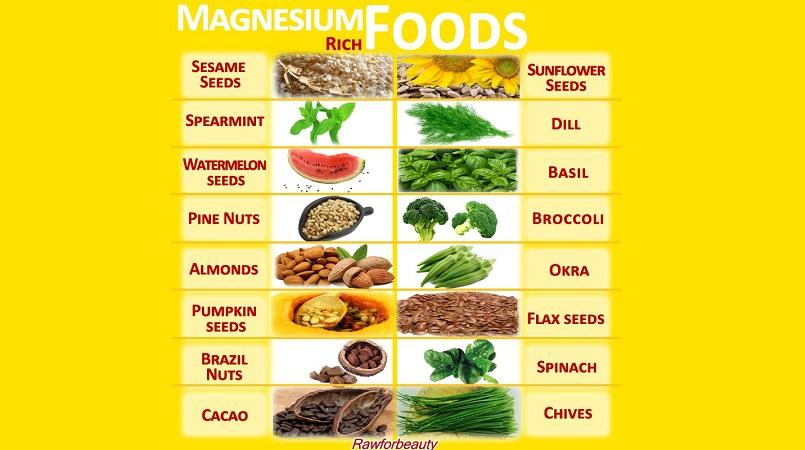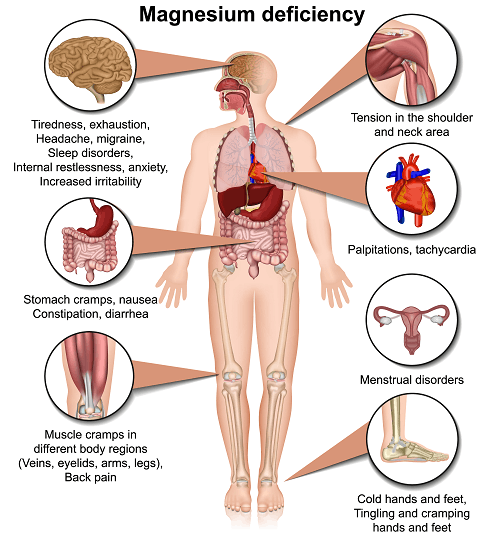3 4 5 Additionally its needed for energy production. Its many functions include helping with muscle.
/magnesium-for-constipation-and-ibsc-1944780_v2-066a0568509b46c497e2fce339b8868e.png) Magnesium Benefits Side Effects Dosage And Interactions
Magnesium Benefits Side Effects Dosage And Interactions
Magnesium is a naturally occurring mineral.
/magnesium-for-constipation-and-ibsc-1944780_v2-066a0568509b46c497e2fce339b8868e.png)
What does magnesium do for the body. From the regulation of muscle contractions and blood pressure to energy production blood sugar balance and even weight management and mood disorders magnesiums role in the body is plentiful. Its a co-factor in more than 300 enzyme systems that regulate various important functions in the body which include protein synthesis muscle contraction nerve functioning normal heart functioning blood sugar control and more. 2 Magnesium is a co-factor in protein synthesis nerve function glucose control and blood pressure regulation.
Acute Myocardial Infarction heart attack. Magnesium is a cofactor in more than 300 enzyme systems that regulate diverse biochemical reactions in the body including protein synthesis muscle and nerve function blood glucose control and blood pressure regulation 1-3. Magnesium gluconate is used as a supplement to treat low levels or to maintain adequate levels of this mineral in the body.
Low magnesium levels dont cause symptoms in the short term. Magnesium plays many crucial roles in the body such as supporting muscle and nerve function and energy production. Water with a high mineral content or hard water is also a source of magnesium.
Magnesium gluconate may also be used for purposes other than those listed in this medication guide. What Does Magnesium Do for Your Body. Maintains Healthy Brain Function.
Magnesium is essential for normal brain function. Magnesium is required for energy production oxidative phosphorylation and glycolysis. Todays blog is republished from my friends at Biotrust Nutrition a leading publisher of daily health tips that I personally read every day Here is the link back to the site.
What Does Magnesium Do for The Body. Magnesium inhibits the actions of the excitatory neurotransmitter glutamate. Magnesium is important for many processes in the body including regulating muscle and nerve function blood sugar levels and blood pressure and making protein bone and DNA.
What Does Magnesium Do for Your Body. Magnesium is crucial to nerve transmission muscle contraction blood coagulation energy production nutrient metabolism and bone and cell formation. Magnesium plays an important role in blood glucose control and insulin metabolism.
Furthermore it aids the production of energy the control of blood glucose levels and cell formation. Magnesium is involved with over 300 biochemical processes in the body and assists in the growth of bones nerves and muscle function as well as helping to neutralise stomach acid. Magnesium Is Involved in Hundreds of Biochemical Reactions in Your Body Magnesium is a mineral found in the earth.
It naturally competes with. Magnesium is an important mineral playing a role in over 300 enzyme reactions in the human body. Magnesium plays an important role in relaying signals between your brain and body.
With such a long list of uses it is no surprise its the fourth-most abundant mineral in the body and involved in over 300 enzymatic reactions. High stress can reduce your bodys levels of magnesium as well. This is vastly overlooked often leading to the development of life threatening conditions such as cardiovascular diseases including.
Magnesium activates over 300 enzyme reactions in the body translating to thousands of biochemical reactions happening on a constant basis daily. Low magnesium may contribute to insulin resistance a precursor to Type II diabetes. 10 Evidence-Based Health Benefits of Magnesium 1.
Whether we really understand why our bodies require certain vitamins and minerals to work properly or not. Magnesium seems to aid 21 detoxification pathways and neutralize toxins protecting us from. The body stores approximately 50 of its magnesium in the bones and 50 in skeletal muscle and soft tissue.
It May Boost Exercise Performance Magnesium also plays a role in exercise performance. Magnesium is an important mineral and electrolyte. Magnesium is most commonly used for constipation as an antacid for heartburn for low magnesium levels for.
Magnesium is a nutrient that the body needs to stay healthy. However chronically low levels can increase the risk of high blood pressure heart disease type 2. Reducing stress and depression.
Magnesium deficiency can lead to many metabolic disruptions that adversely affect virtually every bodily system. It plays a role in nerve signaling between the brain and body helps protect cells from excitotoxicity and improves cerebral blood flow. Maintains a Healthy Heartbeat.
It is important for many systems in the body especially the muscles and nerves. Magnesium is important for maintaining a healthy heartbeat. Too much glutamate is bad and can damage or even kill brain cells.
It can aide in.
 What Does Magnesium Do For The Body All Knowledge You Needs To Know Magnesium Hydroxide By Raven Checo
What Does Magnesium Do For The Body All Knowledge You Needs To Know Magnesium Hydroxide By Raven Checo
 Surprising Magnesium Facts And The Latest Magnesium Research Here Holistic Health Immune Health Health
Surprising Magnesium Facts And The Latest Magnesium Research Here Holistic Health Immune Health Health
Magnesium The Superhero Mineral Align Chiropractic
 The Top 7 Health Benefits Of Magnesium
The Top 7 Health Benefits Of Magnesium
/magnesium-citrate-benefits-side-effects-dosage-and-interactions-4177658_final-bc671784f8dc4b4fbe1e7766c842bd1e.jpg) Benefits Side Effects And Dosage Of Magnesium Citrate
Benefits Side Effects And Dosage Of Magnesium Citrate
 What Does Magnesium Do For Your Body
What Does Magnesium Do For Your Body
 What Does Magnesium Do For Your Body
What Does Magnesium Do For Your Body
 Magnesium And The Body Loop Png
Magnesium And The Body Loop Png
 The Top 7 Health Benefits Of Magnesium
The Top 7 Health Benefits Of Magnesium
 Feeling Fatigued Could It Be Magnesium Deficiency And If So What To Do About It Health Essentials From Cleveland Clinic
Feeling Fatigued Could It Be Magnesium Deficiency And If So What To Do About It Health Essentials From Cleveland Clinic





No comments:
Post a Comment
Note: Only a member of this blog may post a comment.